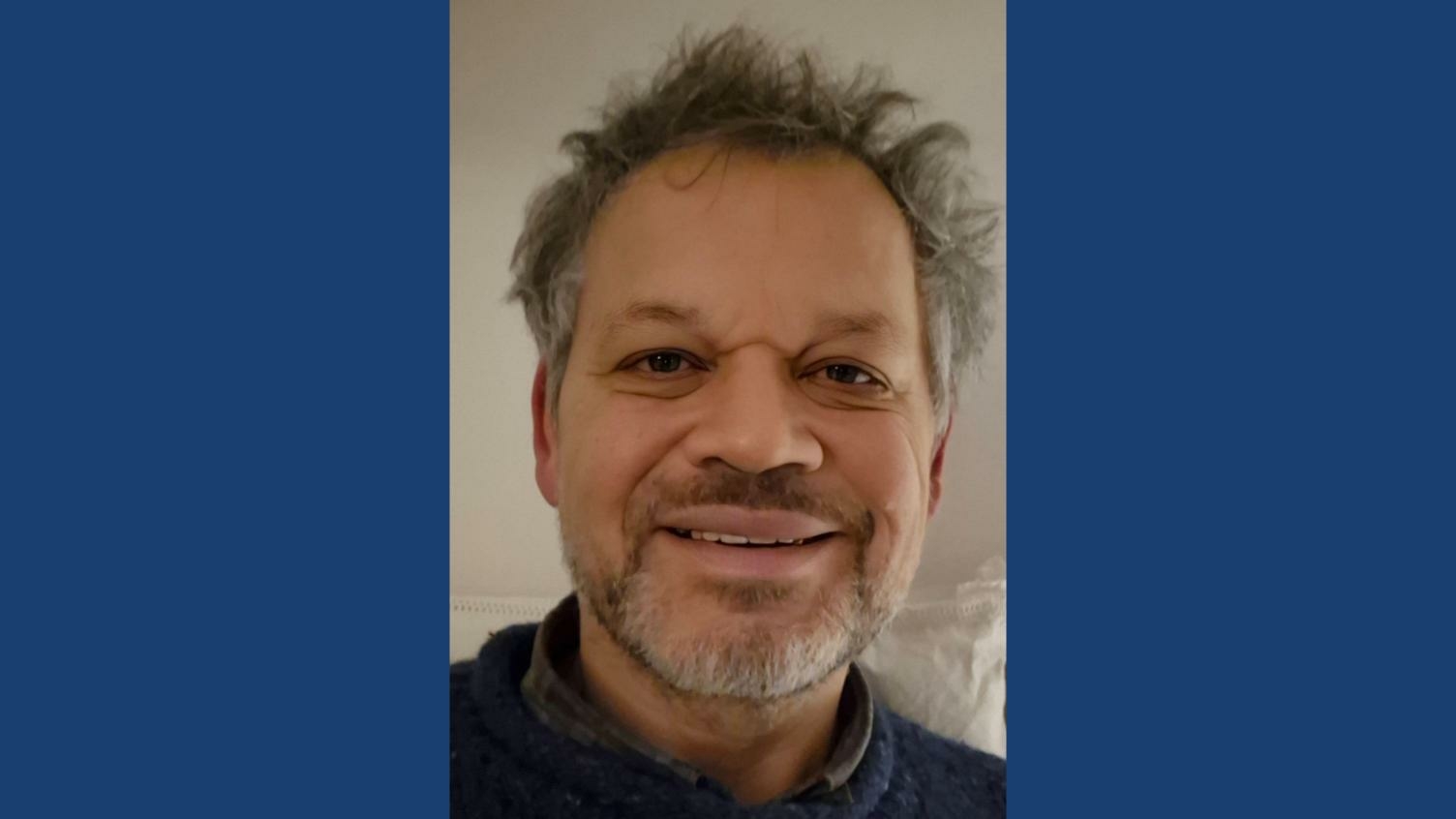Bursar who spent 60th birthday in hospital with COVID-19 takes part in research
- 8 June 2020
- 4 min read
An Oxford man who spent his 60th birthday in hospital with COVID-19 is taking part in research into treating and understanding the virus.
Bursar who spent 60th birthday in hospital with COVID-19 takes part in research
An Oxford man who spent his 60th birthday in hospital with COVID-19 is taking part in research into treating and understanding the virus.
Dr Tim Clayden took antibiotics and donated blood samples for two studies while being treated at Oxford's John Radcliffe Hospital (JR).
They are among 15 high priority COVID-19 studies at Oxford University Hospitals NHS Foundation Trust (OUH), which manages the JR, funded by the National Institute for Health Research (NIHR).
Dr Clayden said: "I had different plans for my 60th birthday, but at least my condition was improving and it doesn't get much better than that. I was an extremely happy bunny."
"Incredible fever"
Dr Clayden, Bursar at the University of Oxford's Green Templeton College, began noticing symptoms on Saturday 14 March.
He said: "I had an incredible fever. My temperature was over 38 degrees and I'd wake up with my t-shirt, bedclothes and duvet wet from sweat. Every weak part of my body, like my back, was really painful and aching.
"The following weekend the aching started slowing down, I was sweating less and I was beginning to think that was it, but then I started having breathing difficulties."
Dr Clayden was referred by his GP to the hospital's Respiratory Intervention Service on Monday 23 March, where he was diagnosed with pneumonia and sent home with antibiotics.
The following night, he had breathing difficulties and called an ambulance and was taken to A&E, where he was put on an oxygen machine and tested for COVID-19.
He said: "At around 5am a doctor told me the results hadn't come in yet, but they were pretty sure I had COVID-19. He asked if I wanted to take part in research and I said 'of course, if there's anything I can do to help, let's make some positives out of misery'."
Drug treatment study
Dr Clayden was moved to a ward for COVID-19 patients and put on antibiotic azithromycin as part of the University of Oxford's Randomised Evaluation of COVID-19 Therapy (RECOVERY) trial into comparing potential treatments for the virus.
Hospitalised COVID-19 patients are given the usual care at their hospital and randomly allocated azithromycin, lopinavir-ritonavir, dexamethasone or hydroxychloroquine - all previously used for other conditions - or no additional treatment. Some patients with inflammation are also given tocilizumab, an anti-inflammatory treatment.
It is hoped that these drugs can treat the symptoms of the virus and help patients recover faster. More drugs can be added to the trial and data is reviewed so effective treatments can be identified and made available to all. The trial is funded by the NIHR and UK Research and Innovation.
Donating data and samples for research
Dr Clayden also joined another study into collecting samples and data to inform future treatments. Research nurses collected daily samples from him in hospital and visited his home three weeks later for a final sample.
The ISARIC 4C (Coronavirus Clinical Characterisation Consortium) study is led by the University of Liverpool with funding from the Wellcome Trust and NIHR.
Dr Clayden said: "The first night I was on the ward and I was so ill, there was one 3am moment where I thought 'well this is how it happens, you just die'. It was pretty harrowing stuff.
"The pain I experienced was the top of the lungs. It's not a burning pain, just deep muscular pain. It's so painful, it's sickening and totally debilitating.
"If I came off the oxygen to go to the toilet or have a shower, I spent about half an hour trying to get my oxygen levels back to normal. I was out of breath, my heartbeat went up, I couldn't walk properly, I couldn't talk, it's horrible."
Dr Clayden, whose wife of 40 years Kathy also had milder COVID-19 symptoms but has not been tested, said: "Emotionally it was very testing for me. Kathy was also ill but she didn't tell me at the time, but when she sent me photographs I could see she really wasn't very well at all.
"By the weekend things started to look a little better. The staff came every three hours to give me my medication and do blood oxygen readings."
"At least I was doing something positive"
He left the hospital on 29 March, a day after his 60th birthday. He said: "Coming out of hospital that afternoon, going outside in the sun and feeling the breeze changed my life.
"It sounds dramatic, but when you have felt like you were going to die, just simple moments like that are fabulous. I'm feeling a lot better, but not fully recovered. I've just got back to working from home.
"I'm really happy to help with research because the more data they get, the more that healthcare staff are able to start helping.
"Even though I was feeling so ill, at least I was doing something positive."


